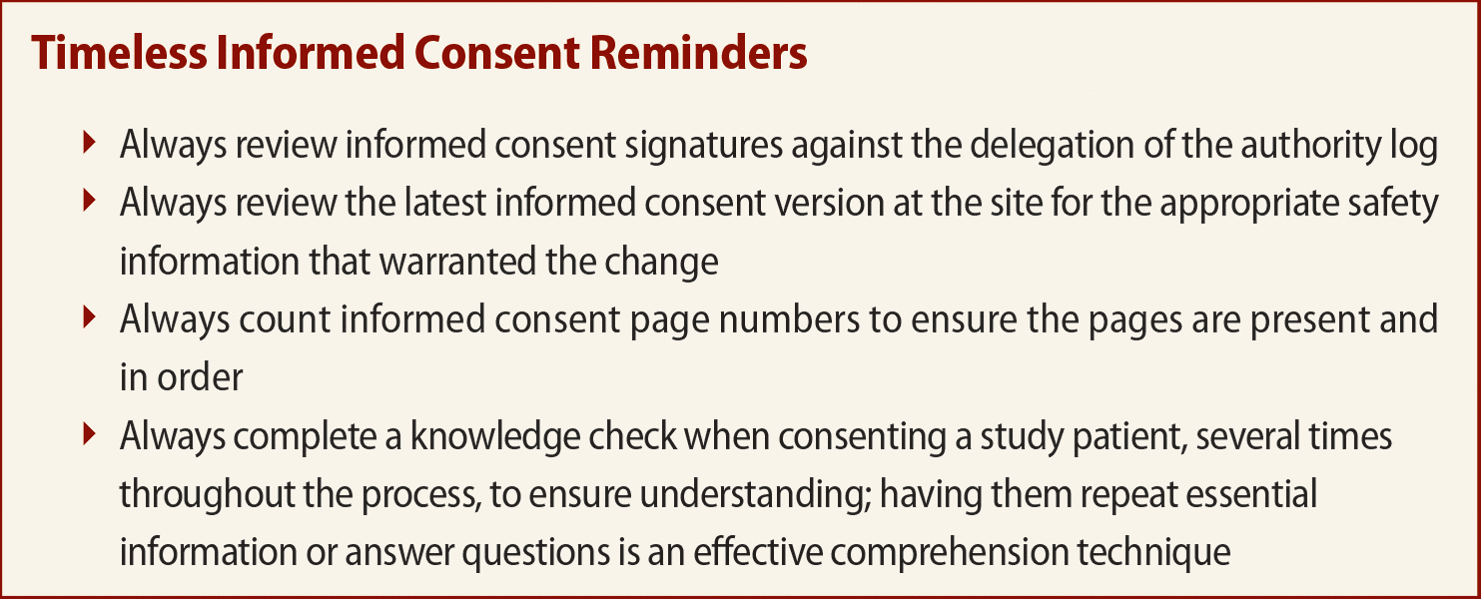
Home » The Pulse on Study Conduct
The Pulse on Study Conduct
April 2, 2018
eConsent: The benefits and impact on patient awareness and understanding
No one can dispute the impact of technology on clinical research. eConsent interactively educates study participants on the study risks, benefits and responsibilities of trial participation, while clinical researchers have had to discard archaic means of data collection that imposed parameters on time and convenience, in lieu of electronic-based systems that truly engage and enlighten the modern study patient.
I have always considered informed consent the most important aspect of the clinical research educational process because I was involved with consenting patients early in my clinical research career. Beyond any preliminary dialogue between a physician or study patient, the informed consent form (ICF) is the fundamental educational bridge between study interest and study participation, between research theory and research application. This 15-30-page paper document illustrates everything about the study, with the ability to sway a human heart and decision process with the language therein.
When I was a study coordinator, the study patient we were consenting was allergic to a component of study drug, which was discovered during the study drug excipient overview from the informed consent form. That experience instilled the critical need to assure beyond all reasonable doubt that the study patient received every piece of information required for them to make an equitable decision, to allow them to truly consider whether the risks outweighed the benefits of study participation.

Further, that experience framed all subsequent ICF reviews as a CRA and inspired me to check the printed names and signatures of study patients against the delegation log, motivated me to confirm that sites had an ICF SOP or appropriately documented ICF process and moved me to check ICF content beyond the initials/signature pages to ensure that updated safety or treatment data had been included. In my career as a clinical researcher I have contributed to ICF error, ICF issue resolution and helped ensure that IP risk language was present in large consent applications.
At present, patient consent management is becoming eConsent. My first personal encounter with eConsent was at my physician’s office. I was given a tablet with which to review and electronically sign the informed consent, (for the elective procedures I was having) and I was intrigued. The tablet consent described the procedure in the most basic terms, and required electronic confirmation of page review before allowing me to proceed to the next page. It was a preliminary demonstration of an educational tool with vast capabilities for patient teaching/comprehension, but I did not fully realize it at the time.
During a site selection visit, the very progressive research-dedicated site had recently implemented an eSource and eConsent system. The consent was built within the platform and delivered via tablet, with hyperlinks and interactive media to further explain the study drug, patient responsibilities and risks/benefits. The platform had versioning control to ensure the patients were consented with the correct ICF version and the patient’s electronic signature was time/date stamped to assure authenticity. However, the most dramatic benefit was the educational process. The patients were immersed in the ICF process instead of being poised hesitantly at the sideline of understanding. They were given every tool to make an informed decision regarding study participation, and with patient safety heading each discussion. It was inspiring to hear the site manager describe the process and how it had succeeded at their site.
eConsent affords the patient the ability to be engaged, proactive and more informed. It encourages increasing the number of study participants and reduces the risk of study drop-outs. It affords the site a competitive advantage technologically, increases enrollment and decreases compliance risk.
I believe eConsent has the potential to exponentially improve the study patient’s education and remove additional barriers to understanding. I recently participated in an educational webinar about eConsent and the many benefits of the platform, primarily the impact on patient awareness and understanding, as well as electronic confirmation that they were provided a GCP-compliant process. The webinar demonstrated the positive impact technology can have on the study patient’s research experience and assurance of safety. This experience gives me the reassurance that, despite any great changes to come in the world of clinical research, patient safety and education will remain the primary foundation of the new frontier.
Elizabeth Blair Weeks-Rowe, LVN, CCRA, has spent nearly 14 years in a variety of clinical research roles including CRA, CRA trainer, CRA manager and clinical research writer. She also is author of the novella Clinical Research Trials and Triumphs. Currently she works in relationship development/study startup in the CRO industry. Email ebwcra@yahoo.com or tweet @ebwcra.




